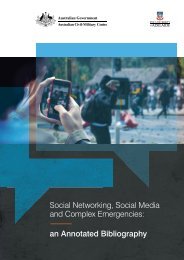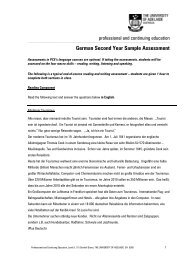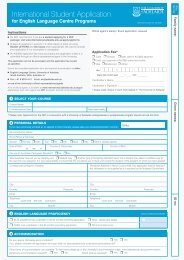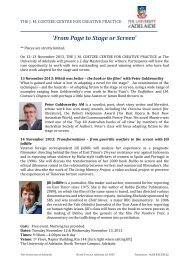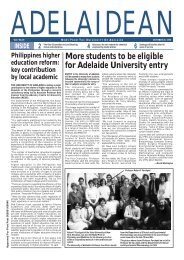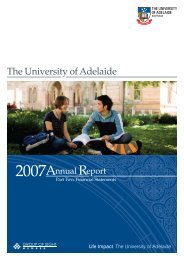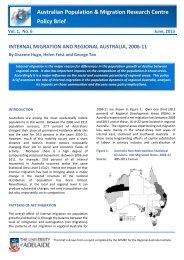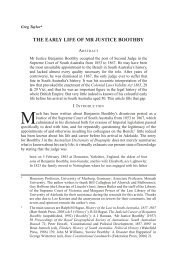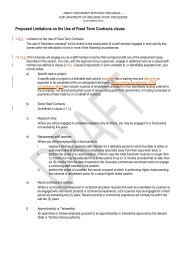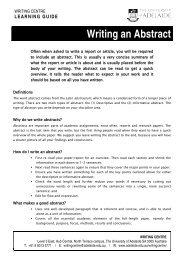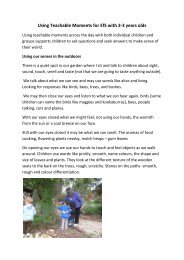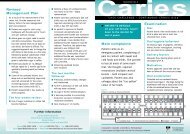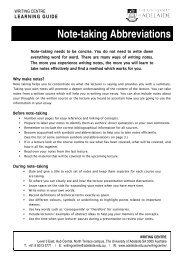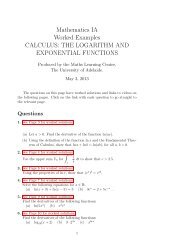Unbridling the Tongues of Women - The University of Adelaide
Unbridling the Tongues of Women - The University of Adelaide
Unbridling the Tongues of Women - The University of Adelaide
Create successful ePaper yourself
Turn your PDF publications into a flip-book with our unique Google optimized e-Paper software.
6<br />
Round woman in her round hole<br />
‘Y<br />
ou may try, but you can never imagine, what it is to have a man’s force <strong>of</strong><br />
genius in you, and yet to suffer <strong>the</strong> slavery <strong>of</strong> being a girl’. This cry <strong>of</strong> anguish<br />
blazes from <strong>the</strong> pages <strong>of</strong> George Eliot’s novel, Daniel Deronda. Spence quoted it in<br />
an article on Eliot’s life and works; she paused at several points which suggest parallels<br />
with her own life, observing that <strong>the</strong> sentiment best expressed <strong>the</strong> condition<br />
Mary Ann Evans experienced in her youth. Since Spence considered ‘<strong>the</strong> province<br />
<strong>of</strong> genius’ to be not so much superlative creativeness, but ra<strong>the</strong>r ‘to call forth a responsive<br />
spark from <strong>the</strong> souls with which it is in communion’, Deronda’s mo<strong>the</strong>r’s<br />
outburst could stand as her own. 1 For 30 years, Spence defied social convention to<br />
work as a journalist, but she did so without acknowledgement, recognition, or even<br />
much in <strong>the</strong> way <strong>of</strong> financial return.<br />
<strong>The</strong> patriarchal social order which so constrained her attempt to maintain her<br />
independence – to become her own breadwinner, while retaining freedom from <strong>the</strong><br />
double subjection <strong>of</strong> women <strong>of</strong> <strong>the</strong> working class – made a ‘lady journalist’ a contradiction<br />
in terms. Margaret Stevenson, wife <strong>of</strong> one <strong>of</strong> <strong>the</strong> Register’s earlier directors,<br />
might have contributed not only poems but also political articles to that paper;<br />
Spence might have had occasional pieces printed in her bro<strong>the</strong>r-in-law’s South Australian;<br />
but both sheltered behind initials and pen-names. 2 <strong>The</strong> daily and bi-weekly<br />
press required news-hounds, and that was deemed an occupation unsuited to a lady.<br />
105



